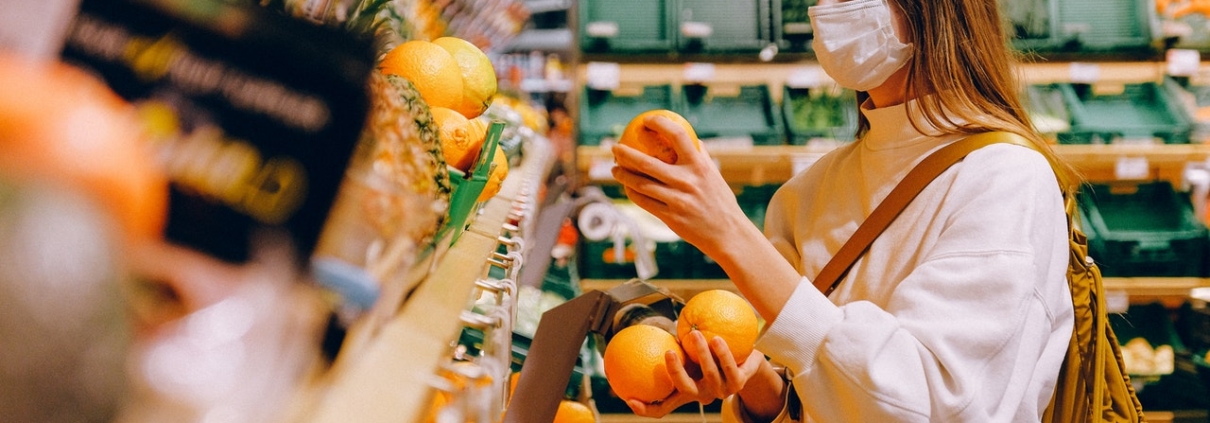Amazon has opened its first ‘no-till, just walk out’ grocery store in London where customers are automatically billed on exiting the store.
Frictionless
The new Amazon Fresh store offers a “frictionless” experience to shoppers as they are given what feels like an incredible level of trust and hopefully save time in the shop thanks to the use of some serious surveillance technology. After registering that they have entered the store by scanning a barcode from their account on the Amazon Shopping app on their smartphone, customers are only required to place the groceries they require in a bag (or carry them by hand) and then simply walk out of the store.
Technology
The technology at work in the Amazon Fresh store to enable the removal of tills includes cameras and depth-sensors as well as deep-learning and AI-based software, similar to that used in the first Amazon Go stores in the US.
Own Brand Too
In addition to the groceries from Morrison’s, Booths and other supermarkets that Amazon has arrangements with, around one-third of the products in the Amazon Fresh store in Ealing are Amazon’s own-brand products. These include staples such milk and eggs, sourced in the UK, as well as an “Our Selection” sub-brand for premium products.
Concerns
Some of the main concerns about Amazon’s new ‘frictionless’ store idea becoming more widespread in the future include:
- Worries that it could mean job losses. For example, Paddy Lillis, general secretary of the USDAW union has expressed concern that an expansion of this kind of concept could see a number of retail jobs in the high street disappear, ironically not long after the same key workers had been hailed as heroes in the pandemic.
- Although Amazon has said that it will only keep shopping data in a customers account for 30 days, there are still concerns about privacy, liberty, and rights groups (e.g. Big Brother Watch) about the privacy implications of tracking shoppers and what the records and analytics could be used for.
Amazon in London
Amazon has had a presence in the grocery market, and particularly in a ‘bricks and mortar’ way in London since it launched Amazon Fresh there back in 2016.
Also, Amazon had previously operated its own ‘Amazon Restaurants’ food delivery service in London, but this was closed in December 2018 following strong competition from Deliveroo, Uber Eats and Just Eat, among and others.
Fast forward to 2020 and in April, the Competition and Markets Authority announced that Amazon could invest in food distribution company Deliveroo. Also, in July 2020 the Amazon Fresh grocery service was re-launched in London and parts of the home counties so that Amazon Prime customers could buy groceries online and have them delivered same or next day for free (for orders over £40). This put Amazon in competition with the supermarkets and Ocado.
In the US in 2017
Amazon made some big moves into the grocery market in its home country of the US back in 2017 when it extended Amazon Fresh to bricks and mortar locations in its home city of Seattle. Also, in June 2017, Amazon acquired struggling grocery chain Whole Foods Market Inc for $14 billion, thereby giving it a base to start taking on bricks-and-mortar grocery giants such Wal-Mart.
What Does This Mean For Your Business?
Amazon has had its ups and downs trying to get into the bricks and mortar groceries market in the UK and this latest move shows very clear intent while firing a shot across the bows of grocery competitors in the UK in terms of demonstrating how technology can now be used to up the game, yet again, for customer convenience. It may also be a way to showcase the technology that could be sold to rivals along the way. Although the ‘totally frictionless’ experience is reported to have been a little strange for the first customers, after a pandemic (where not touching things and minimising contact with others has been important) this type of shopping experience may be something that looks particularly valuable looking forward. It is understood that Amazon intends to open more of these stores, most likely in the centre of cities, and although many good sites are already taken by express versions of competitor supermarkets, the effects on the high street of the pandemic in terms of store closures may make other sites available. This may give competitors cause for concern in the near future and/or may make them investigate investing in technology to perhaps create their own versions.
If you would like to discuss your technology requirements please:
- Email: hello@gmal.co.uk
- Visit our contact us page
- Or call 020 8778 7759
Back to Tech News



